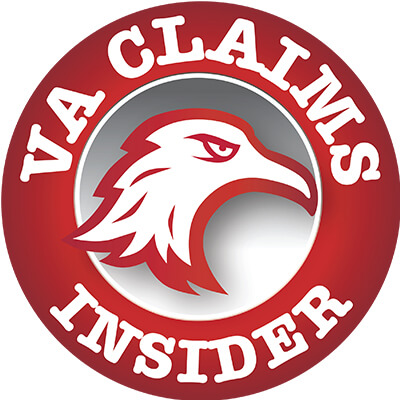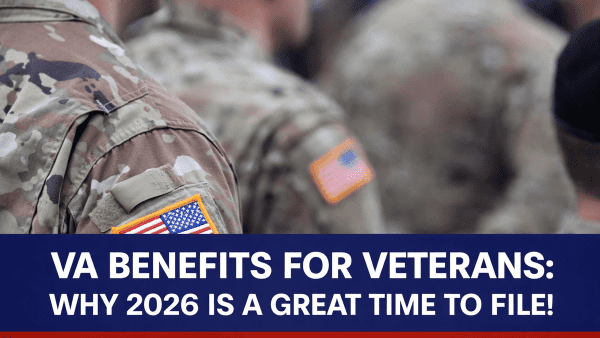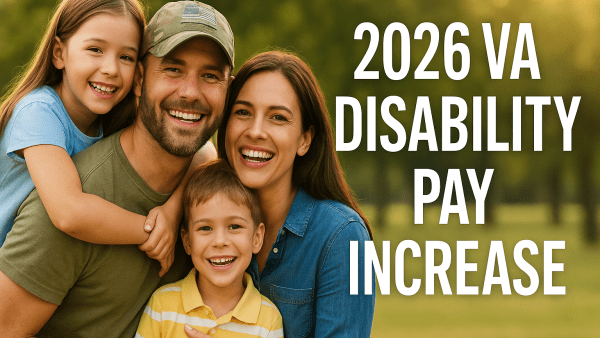Looking for Expert-Level VA Claim Answers?📱Call Us Now! 737-295-2226
Currently, the VA’s Office of Blind Rehabilitation Services estimates that there are more than a million veterans with low vision and around 130,000 legally blind Veterans in the U.S. As veterans from the Korean and Vietnam wars age, those figures are expected to exponentially increase due to various age-related eye conditions.

How the VA Rates for Blindness
To determine veterans’ benefits for blindness, the VA uses the Central Visual Acuity Rating System. You’ve probably heard the phrase “20/20 vision”. That refers to the results of the visual acuity test. 20/20 vision is considered normal vision (not “perfect” vision), meaning that you see an object at 20 feet the same way a “normal” person would.
According to this system, a person with 5/200 or worse vision is considered blind.
When visual acuity is tested they will determine both your near and distant vision. Only distant vision is used to rate for blindness. Also, the test will determine your vision both before and after correction. It’s only after receiving corrective lenses the VA will determine if a veteran is legally blind or not.
In other words, you must still be blind while using corrective lenses to qualify.
If it is determined that you are legally blind (5/200 or worse vision in both eyes) you will automatically qualify for 100% disability compensation from the VA. Other ratings are determined by the combination of vision in both eyes. A strong, detailed breakdown of the ratings can be found by clicking here.
VA Provided Services for Legally Blind Veterans
The VA offers a number of blind and low vision rehabilitation services to assist legally blind veterans in living an independent life. Some of those services include:
- Vision-enhancing devices for legally blind veterans like electronic reading machines and electronic mobility devices along with the training on how to use them
- Training new visual skills to assist in everyday tasks like cooking, reading, writing, managing medicines and reading signs.
- Sensory training to better use other senses like hearing and touch
- Mobility and orientation training to create mental maps for moving about
- Counseling and group therapy to help with the adjustment to life with blindness
- Family care to help the family adjust
As of right now the VA does not provide guide dogs but will help pair you up with other agencies that do. The VA will, in turn, pay for the veterinary care and any equipment needed for the dog to provide the most assistance.
At this time there are thirteen Blind Rehabilitation Centers located in the U.S. and Puerto Rico, where legally blind veterans can receive the help they need while they transition into independent living while blind. The VA also provides help from Blind Rehabilitation Outpatient Specialists who are professionally trained to assist legally blind veterans where they live in case they cannot make it to a Center.
Conclusion on Legally Blind Veterans
While losing your sight can be a traumatic experience, there is still the potential to live a long, fulfilling life independently. The VA offers more support than most other healthcare providers in assisting blind veterans.
To qualify for any of these services, you must have a VA Disability rating. In need of a current or higher rating?! VA Claims Insider has a PROVEN system to get you the disability you deserve. Get started today!
Deserve a HIGHER VA Rating? WE CAN HELP.
Join our premier education-based membership program, VA Claims Insider Elite, connect with an expert-level Veteran Coach (VC) within minutes, and finally get the rating you deserve. Click the button below to get started.
About the Author

About VA Claims Insider
VA Claims Insider is an education-based coaching/consulting company. We’re here for disabled veterans exploring eligibility for increased VA disability benefits and who wish to learn more about that process. We also connect veterans with independent medical professionals in our referral network for medical examinations, disability evaluations, and credible independent medical opinions and nexus statements (medical nexus letters) for a wide range of disability conditions.



